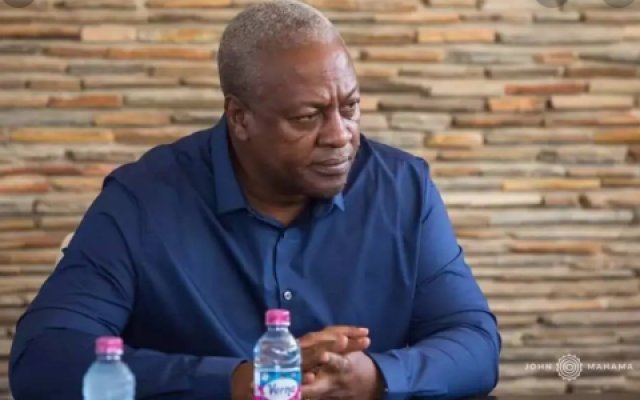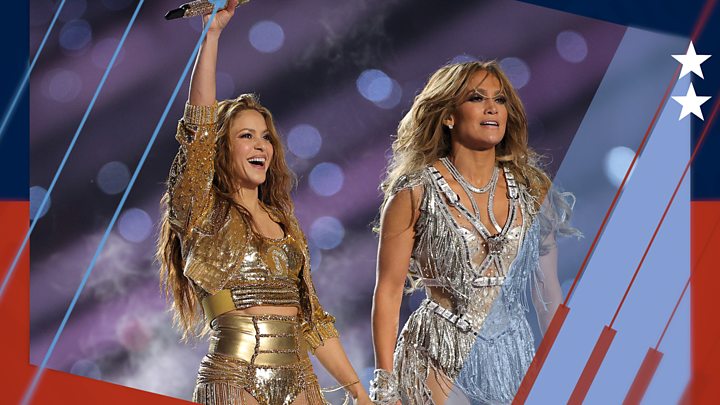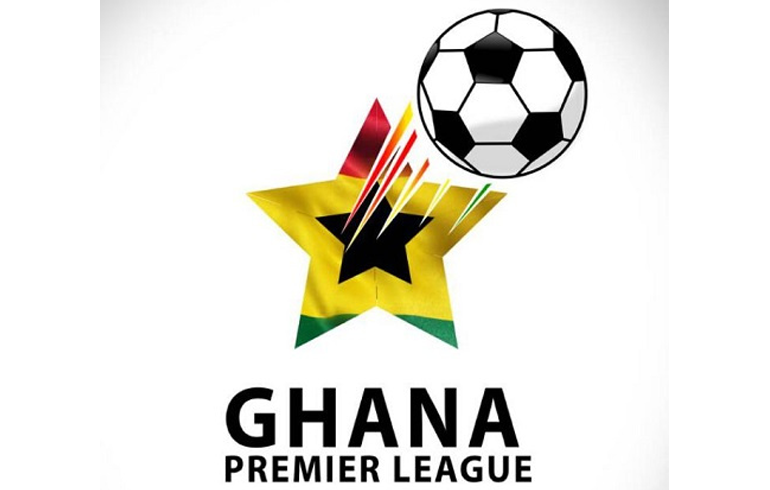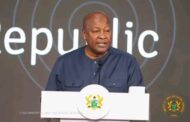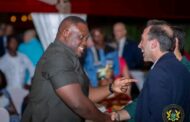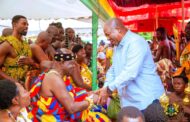The bribery scandal involving Airbus, Europe’s largest aerospace multinational, has opened a whole conversation on the corruption subject involving the former president and current flagbearer of the opposition National Democratic Congress (NDC), John Dramani Mahama.
According to The Guardian of the UK, Airbus was found guilty by a High Court in London for paying huge bribes to secure contracts during Mr Mahama’s tenure as President of Ghana and Commander in Chief of the Ghana Armed Forces.
The Court later fine Airbus of three billion pounds (£3bn) as penalties, something that anti-corruption investigators have described as the largest ever corporate fine for bribery in the world after judges declared the corruption was grave, pervasive and pernicious.”
“The planemaker agreed to pay the penalties on Friday after reaching settlements with investigators in the UK, France and the US to end inquiries that started four years ago,” the report stated. Dame Victoria Sharp, who is the President of the Queen’s Bench Division, said: “The seriousness of the criminality in this case hardly needs to be spelled out. As is acknowledged on all sides, it was grave.”
She noted that the scale of the wrongdoing demonstrates bribery was “endemic in two core business areas within Airbus.”
Airbus is reported to have “used a network of secret agents to pay large-scale backhanders to officials in foreign countries to land high-value contracts”.
“Allison Clare, for the SFO, told the court the company had paid bribes in Malaysia, Sri Lanka, Indonesia, Taiwan and Ghana between 2011 and 2015.”
Ghana under late President John Atta-Mills in 2011 and former President John Mahama in 2015, acquired three Airbus C295 planes from the company as part of an effort to augment and modernize the fleet of the Ghana Armed Forces.
It emerged that the first order of the military aeroplane arrived in the country on November 17, 2011, followed by a second on March 19, 2012. The last order arrived in the country on December 4, 2015.
President John Dramani Mahama, in November 2014, announced that Ghana was to acquire an additional C295, in addition to other aircraft, including five Super Tucanos, Mi-17s and four Z-9s.
A total of about $150 million was spent in acquiring all the three aircraft, one of which overshot the runway recently. Ghana’s Ministry of Defence stated that the accident happened because the aircraft had not undergone its scheduled maintenance.
What Martin Amidu said about Mahama
Special Prosecutor Martin Amidu sometime in October, 2012, was reported to have said, the late President John Evans Atta-Mills set up a committee to investigate his successor, John Dramani Mahama, over the acquisition of aircraft for the Ghana Armed Forces negotiated by the latter.
On 19th February, 2009, in his State of the Nation’s address to Parliament, President Mills told Parliament that his government was reviewing the decision to purchase two executive Presidential jets. “Ghana simply cannot afford the expenditure at this time and we certainly do not need two Presidential Jets”, late President Atta-Mills said to the MPs.
Mahama, according to media reports, was then the chairman of the Armed Forces Council and was frantically receiving delegations from Brazil and negotiating to acquire five new jets, including an expensive hangar, when President Atta-Mills appeared not to be aware of whole transactions.
The committee made up of William Aboah, George Amoah and Brig. Gen. Allotey (Rtd.), were given the mandate to investigate the process of acquisition of the five aircraft, including Embraer 190 aircraft and hangar for the Ghana Armed Forces.
Amongst the terms of reference of the committee was to investigate whether or not the John Mahama led team was diligent, truthful, incorrupt, patriotic and prudent in their authorization of the five aeroplanes for Ghana but they (committee) never commenced sitting.
It was alleged that the committee was ‘dead on arrival’ as the late President was confronted and warned of the implications of investigating his vice president (Mahama) as well as other government officials and top military officers.
Martin Amidu stated: “Pressure groups never allowed the committee to function, but the very fact that the late President Mills constituted the committee meant that he was uncomfortable with and suspicious of the alleged inflated prices of the aircraft”.
Prosecution on Ghana
The prosecutor stated: “Between July 1, 2011, and June 1, 2015, Airbus SE failed to prevent persons associated with Airbus SE from bribing others concerned with the purchase of military transport aircraft by the Government of Ghana, where the said bribery was intended to obtain or retain business or advantage in the conduct of business for Airbus SE.”
Airbus “between 2009 and 2015 engaged intermediary 5, a close relative of a high ranking elected Ghanaian government official (Government Official 1), as its BP in respect of the proposed sale of three aircraft to the government of Ghana. A number of Airbus employees knew that intermediary 5 was a close relative of Government Official 1, a key decision maker in respect of the sales. A number of Airbus employees made or promised success based commission payments of approximately £5 million to the intermediary. False documentation was created by or with the agreement of Airbus employees in order to support and disguise these payments. The payments were intended to induce or reward improper favour by Government Official 1 towards Airbus,” parts of the prosecution case relating to Ghana read.
Intermediary 5, according to the court document, is a UK national born in Ghana. He was brought to the United Kingdom as a young child and lost touch with his Ghanaian family until the late 1990s. He had no prior experience or expertise in the aerospace industry.
“A CV provided to Airbus in 2011 listed Intermediary 5’s employment before 2009 as an events manager for a local authority, director of a football merchandising company and facilities manager for an estate management business.
“Intermediary 5 was assisted in his Airbus work by two other UK nationals: Intermediary 6 and Intermediary 7.
“Intermediary 6 has publicly described Intermediary 5 as his “best friend”. There is no evidence which suggests that either Intermediary 6 or Intermediary 7 had any prior experience or expertise in the aerospace industry.
“A “CV” that Intermediary 6 provided to Airbus in 2011 listed his pre-2009 employment as a UK television actor and film director. Intermediary 7 was also a former UK television actor,” the document further added.
Source: Ghanaweb



